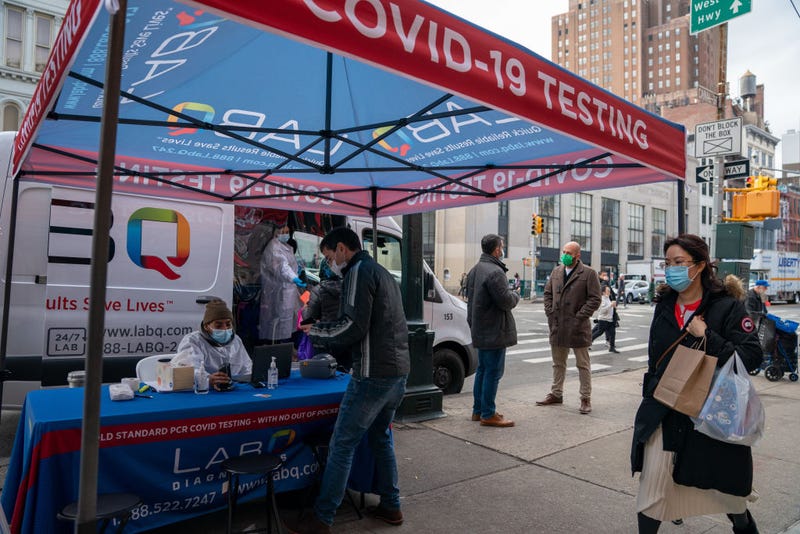
Centers of Disease Control and Prevention data shows that cases of Omicron variant COVID-19 in the U.S. jumped by more than 2 percent last week, which begs the question: why is it so transmissible?
Researchers from the University of Hong Kong may have found a clue related to how the variant infects bronchial tissue.
In a study published Wednesday, they found that the omicron variant multiplies about 70 times faster inside human respiratory tract tissue than the delta variant. As of this week, the delta variant – which is more transmissible than the SARS-CoV-2 virus that first caused the global pandemic – is the most common variant of COVID-19 in the country, according to the CDC.
Additionally, the University of Hong Kong report found that the omicron variant reached higher levels in respiratory tissue compared to delta 48 hours after infection.
Tissue from human bronchi, tubes that carry air from your windpipe to your lungs, was used to conduct the study. Researchers infected the tissue with live, replicating particles of delta, omicron and a variant of SARS-CoV-2 that was circulating in 2020 to see how fast each variant spread.
They also experimented on lung tissue separately from the bronchi and found omicron was less efficient at infecting those cells than delta and the originally discovered virus.
While the University of Hong Kong research has not yet been peer reviewed, it falls in line with another study published Tuesday.
Immunologist Wilfredo Garcia-Beltran, a fellow at the Ragon Institute of Massachusetts General Hospital, and his colleagues conducted the study using pseudoviruses, particles related to viruses used for research. They found that omicron’s spike protein, the region that binds to human cells and triggers infection, allowed it to enter cells two times easier than delta and four times easier than the original COVID-19 virus.
Based on these findings Garcia-Beltran said lower doses of omicron could result in infection compared to the other common variants.
“That's a very far-out interpretation,” he said, according to NPR. “But we think it will probably pan out that way, given that we're looking at a variant with more efficient entry into human cells.”
However, Garcia-Beltran believes that scientists should be measuring the viral loads inside patients’ respiratory tracts, where delta leads to 1,000 more virus particles than the original variants.
“I want to see what the viral loads look like for omicron,” he says. “Samples from people who are actually infected — that's the gold standard. That's where the action is.”
Alejandro Balazs, a virologist at Harvard Medical School, agrees. Isolated tissue doesn’t generate much immune response, he explained.
Balazs said the University of Hong Kong research “looks interesting for sure. But you have to always be careful how you interpret studies outside of animals and human patients.”
According to the CDC, omicron “likely will spread more easily than the original SARS-CoV-2 virus and how easily Omicron spreads compared to Delta remains unknown,” along with whether the variant could cause more severe illness. The U.K. Health Security Agency recently found that the omicron variant is more transmissible in households than the delta variant.
CDC experts believe that anyone with omicron can infect others regardless of their symptoms or vaccination status. Due to this threat, states such as California and New York have reinstated mask mandates.


